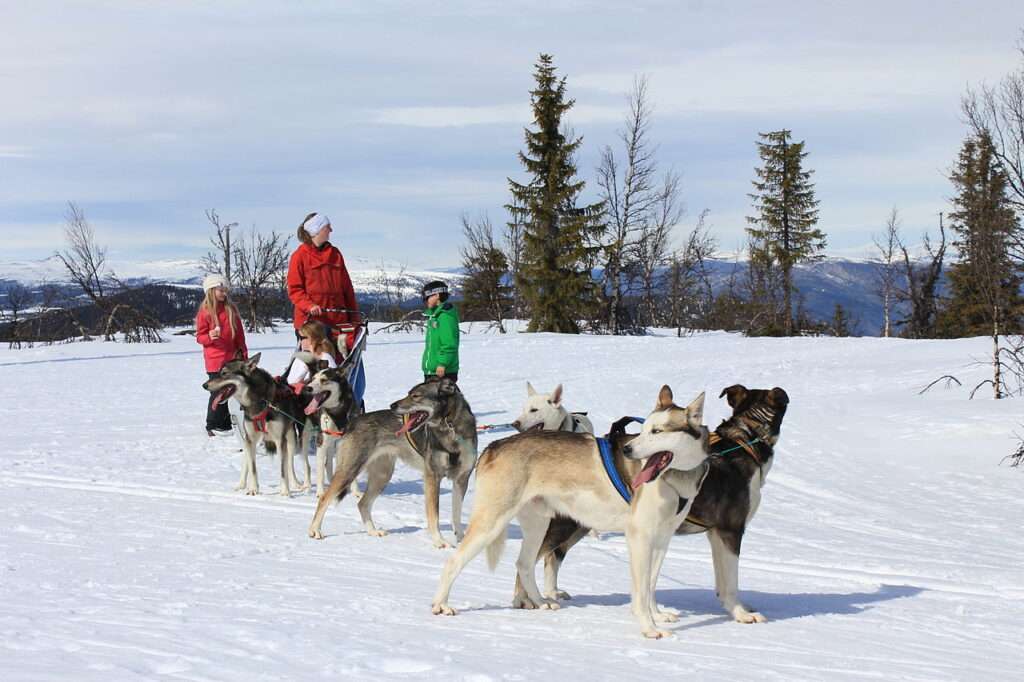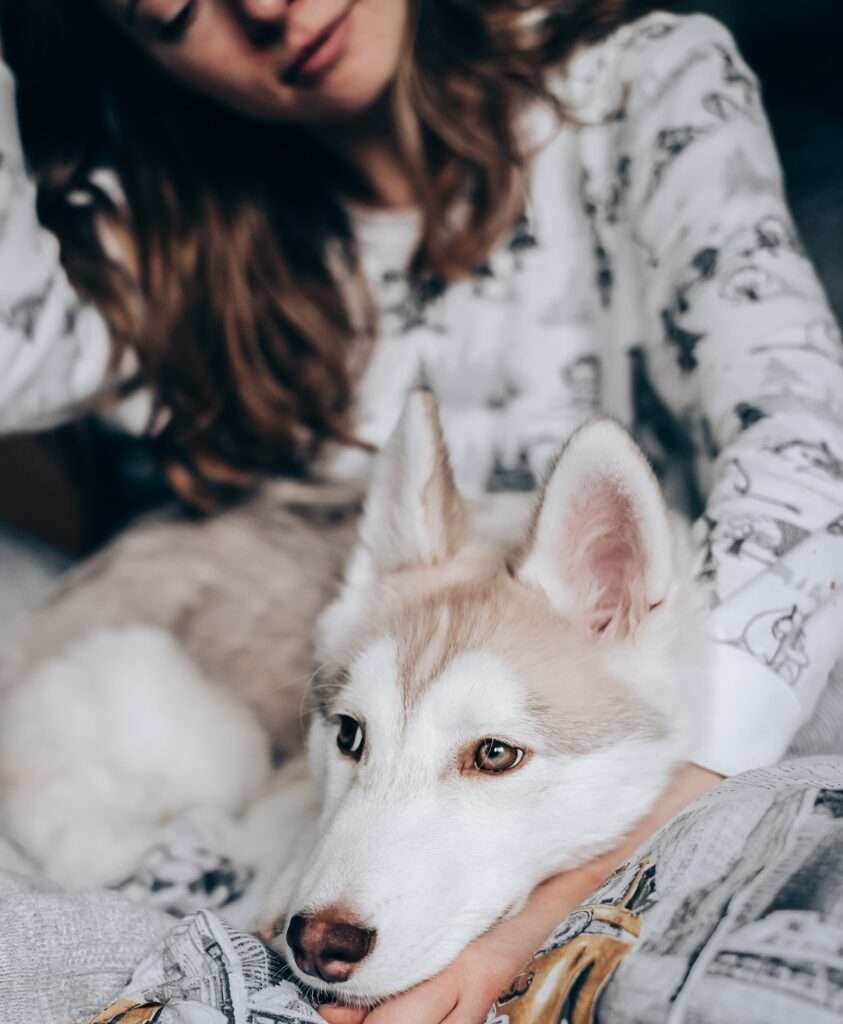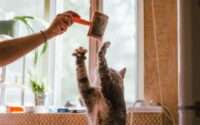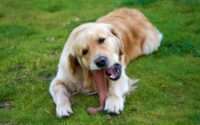Why Are Huskies So Dramatic? Tips for Managing Their Quirky Behavior
Huskies are one of the most popular dog breeds in the world, known for their stunning appearance and playful personality. But there’s no denying that they can also be quite dramatic at times! From their loud howling to their playful antics, it’s clear that Huskies love to make a scene.
But why are Huskies so dramatic? In this article, we’ll explore the quirks and traits of this unique breed and delve into the reasons behind their dramatic behavior. We’ll also offer some tips on how to manage your Husky’s dramatic tendencies, so you can enjoy a happy and harmonious relationship with your furry friend.
Understanding the Husky Breed

Huskies have a long and storied history, having been bred as sled dogs by the Chukchi people of Siberia. They were prized for their endurance and ability to work in harsh conditions, and were even used to transport medicine during the diphtheria outbreak in Nome, Alaska in 1925. Today, Huskies are beloved pets around the world, but their working heritage still shines through in their personality and behavior.
Physically, Huskies are striking dogs with thick fur, piercing blue eyes, and a sturdy build. They’re built for endurance and can run for miles without getting tired. But it’s their personality that really sets them apart. Huskies are known for being independent, strong-willed, and full of energy. They love to play and explore, but they can also be quite stubborn at times. All of these traits contribute to their dramatic behavior, which we’ll explore in more detail in the next section.
The Science of Drama
Dramatic behavior in dogs is a complex phenomenon that can be influenced by a variety of factors. Genetics certainly play a role, as certain breeds are more predisposed to dramatic behavior than others. However, temperament and environment also play important roles in a dog’s behavior. For Huskies, their independent and strong-willed nature can sometimes lead to dramatic behavior, especially if they’re not properly trained and socialized.
Socialization is particularly important for Huskies, as they can be wary of strangers and other dogs if they’re not exposed to them early on in life. Training is also key, as Huskies need clear boundaries and rules to follow in order to feel secure and confident. Without proper training, they may resort to more dramatic behaviors like howling or digging to get attention.
Common Dramatic Behaviors of Huskies
As we’ve mentioned, Huskies are no strangers to drama. Some of the most common dramatic behaviors exhibited by Huskies include howling, digging, chewing, and escaping. These behaviors can be triggered by a variety of factors, including boredom, anxiety, and the need for exercise.
Howling is a particularly dramatic behavior that’s often associated with Huskies. They have a unique vocal range that allows them to produce a wide range of sounds, from soft whines to loud howls that can be heard for miles. Howling can be triggered by a variety of stimuli, including the sound of sirens, other dogs howling, or even music.
Digging is another common behavior exhibited by Huskies, particularly if they’re not getting enough exercise or mental stimulation. Huskies are bred to run and explore, and if they don’t have an outlet for their energy, they may resort to digging up your yard or garden.
Chewing is also a common behavior among Huskies, especially when they’re teething or bored. Providing them with plenty of chew toys and bones can help redirect their chewing behavior and prevent them from destroying your belongings.
Lastly, escaping is a behavior that many Husky owners are all too familiar with. Huskies are incredibly intelligent dogs that can easily find ways to escape from yards or homes if they’re not properly secured. This can be a dangerous behavior, as Huskies are natural runners and can easily get lost or injured if they’re not properly supervised.
In short, Huskies are a unique and dramatic breed that require proper training, socialization, and exercise to thrive. By understanding their quirks and tendencies, you can provide them with the love and care they need to live happy and healthy lives.
Tips for Managing Dramatic Behavior in Huskies

While dramatic behavior is a common trait among Huskies, it’s important to manage it properly to ensure a happy and harmonious relationship with your furry friend. Here are some tips for managing dramatic behavior in Huskies:
- Provide plenty of exercise and mental stimulation: Huskies are active dogs that need plenty of exercise and mental stimulation to stay happy and healthy. Make sure you’re providing them with enough opportunities to run, play, and explore.
- Use positive reinforcement training: Huskies respond well to positive reinforcement training, so make sure you’re rewarding good behavior with treats and praise.
- Provide plenty of chew toys and bones: Chewing is a natural behavior for Huskies, so make sure you’re providing them with plenty of chew toys and bones to redirect their chewing behavior.
- Practice good socialization: Socialization is key for Huskies, so make sure you’re exposing them to different people and dogs early on in life.
- Set clear boundaries and rules: Huskies need clear boundaries and rules to follow in order to feel secure and confident. Make sure you’re providing them with a structured environment that they can thrive in.
When to Seek Professional Help
While the tips we’ve outlined can be effective for managing dramatic behavior in Huskies, there may be times when you need to seek professional help. Here are some signs that it may be time to seek help from a professional dog trainer or behaviorist:
- Aggressive behavior: If your Husky is exhibiting aggressive behavior towards people or other dogs, it’s important to seek professional help as soon as possible.
- Destructive behavior: If your Husky is destroying your belongings or causing damage to your home, it may be a sign that they’re not getting enough exercise or mental stimulation.
- Excessive barking or howling: While howling is a natural behavior for Huskies, excessive barking or howling can be a sign of anxiety or boredom.
- Escaping: If your Husky is constantly trying to escape from your yard or home, it may be a sign that they’re not getting enough exercise or mental stimulation.
In these cases, seeking professional help from a dog trainer or behaviorist can help address the root cause of your Husky’s dramatic behavior and provide you with the tools and techniques you need to manage it effectively.
Conclusion
In conclusion, Huskies are known for their dramatic behavior, but it’s important to understand that this is simply part of their unique breed characteristics. Understanding the underlying causes of Husky drama, such as their high energy levels and need for social interaction, can help pet parents prevent and manage this behavior.
Handling dramatic Huskies requires patience, consistency, and a thorough understanding of the breed, and prioritizing their health and wellness is essential for preventing and managing dramatic behavior. With patience, love, and proper training, you can help your Husky thrive and become a cherished member of your family.
Remember to provide your Husky with plenty of exercise, mental stimulation, and socialization. Use positive reinforcement training techniques and set clear boundaries and rules to help them feel secure and confident. And if you’re ever struggling to manage their dramatic behavior, don’t hesitate to seek professional help from a dog trainer or behaviorist.
Frequently Asked Questions
Are huskies dramatic?
No, not all huskies are dramatic. However, the breed is known for being more predisposed to dramatic behavior than other breeds.
How do I manage my husky’s dramatic behavior?
There are several ways to manage a husky’s dramatic behavior, including providing plenty of exercise and mental stimulation, setting clear boundaries and rules, and using positive reinforcement training techniques.
Is it possible to train a husky to be less dramatic?
Yes, it is possible to train a husky to be less dramatic. However, it requires patience, consistency, and a good understanding of positive reinforcement training techniques.
Do huskies only exhibit dramatic behavior when they are unhappy or uncomfortable?
No, huskies can exhibit dramatic behavior for a variety of reasons, including excitement, playfulness, and boredom. It’s important to understand your husky’s individual personality and behavior patterns to determine the cause of their dramatic behavior.
Can huskies be trained to be less vocal?
Yes, huskies can be trained to be less vocal. However, it’s important to understand that vocalization is a natural behavior for the breed, so it may take some time and patience to train them to be quieter.
Do huskies only exhibit dramatic behavior when they are left alone?
No, huskies can exhibit dramatic behavior in a variety of situations, including when they are left alone, when they are around other dogs or people, and when they are bored or understimulated.
Is it normal for huskies to howl a lot?
Yes, it’s normal for huskies to howl, as it is a natural behavior for the breed. However, excessive howling can be a sign of anxiety or boredom, so it’s important to provide plenty of exercise and mental stimulation.
Are huskies good with children?
Yes, huskies can be good with children, but it’s important to supervise interactions between children and dogs and to teach children how to interact with dogs in a safe and respectful manner.
Do huskies require a lot of exercise?
Yes, huskies require a lot of exercise, as they are an active breed that was originally bred for sledding and other outdoor activities. Without enough exercise, huskies can become bored and exhibit destructive or dramatic behavior.
Are huskies good apartment dogs?
Huskies can adapt to apartment living, but they are an active breed that requires plenty of exercise and mental stimulation. If you live in an apartment, it’s important to provide your husky with plenty of opportunities to exercise and play, such as daily walks and trips to the dog park.
You May Also Be Interested In:
- How Much is a Husky? A Detailed Expenses Breakdown Guide
- How Long Do Huskies Live? Exploring the Lifespan of these Amazing Dogs




